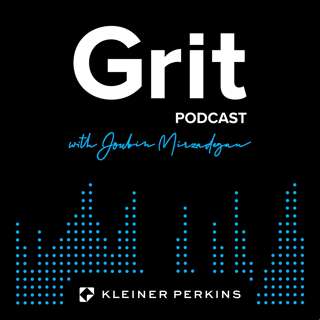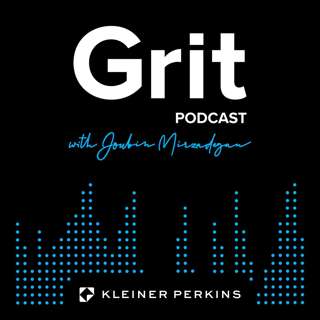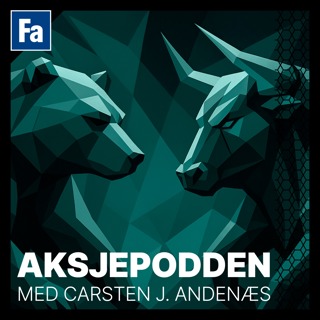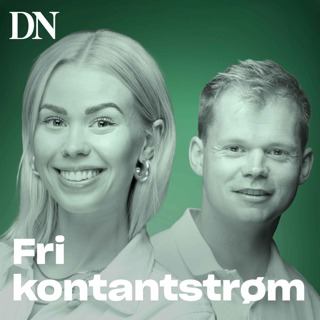
COO Ironclad, Leyla Seka: More Equal Is Always Better
Leyla Seka has a clear idea of “what makes me great” as the COO of Ironclad: She’s incredibly direct with her team. Although many people are not comfortable with getting direct feedback, she says, “I can’t do my job if I can’t tell you what I’m seeing.” And in the end, she sees her job as one of seeking out the truth, to make her business better.In this episode, Leyla and Joubin discuss developing peccadilloes as you get older, why a former boss told her “if you’re in a bad mood, don’t come to work,” what a COO actually does for her team, working through the first dotcom bust, why Leyla doesn’t think she’s better than anyone else, the long battle for equal pay, the “victim mindset” in the tech industry, empowering others who don’t have confidence in themselves, and why you can’t outwork every problem.In this episode, we cover:Maintaining a positive attitude, and dealing with low-energy days (07:57)“The culture of the company is why you stay” (12:02)Overthinking things, good communication and letting go of anxieties (17:50)Leyla’s previous jobs and her parents’ unusual careers (24:55)Keeping ego out of it and focusing on the “next best action” (31:10)Fighting for equal pay for women at Salesforce (39:19)The double-edged sword of innovation at Salesforce (49:19)How Leyla makes stars out of the underestimated people on her teams (55:40)Leaving Salesforce and starting Operator Collective (59:55)How she started working at Ironclad, and what the company does for customers (01:04:19)The biggest challenge Leyla has faced in her first six months at Ironclad (01:08:36)Links:Connect with LeylaTwitterLinkedInConnect with JoubinTwitterLinkedInEmail: grit@kleinerperkins.com Learn more about Kleiner PerkinsThis episode was edited by Eric Johnson from LightningPod.fm
6 Jun 20221h 12min

Chief Freemium Business Officer at Spotify, Alex Norstrom: The Power of Setting Impossible Goals
When Alex Norstrom started working at Spotify in 2011, CEO Daniel Ek told him there were three goals: Growth, growth, and growth. But Alex — now the Chief Freemium Business Officer — argued that his team would be better motivated by an “impossible goal,” something like reaching 100 million users. To which Daniel replied: “Let’s do it. Your goal is to get us to 100 million users. Please begin.”In this episode, Alex and Joubin convene at Spotify’s brand-new Stockholm studio to discuss his first job, the “shadow” mentorship program Alex runs, how Facebook changed everything for the gaming company King, thinking about the “bigger picture,” the tremendous effort happening behind the scenes before Spotify launched in each new country, “optimizing for surprises,” Joubin’s embarrassing Spotify playlists, why we’re still in the early innings of podcasting, Alex’s lowest point at Spotify, partnering with FC Barcelona, and culture as currency.In this episode, we cover:The surprising lack of media coverage of Alex despite his prominence at Spotify (05:56) Working at his mother’s Chinese restaurant and his relationship with food (12:21)The early “fiascos” in Alex’s career, and how he came to work at Candy Crush Saga creator King (18:01)How Spotify CEO Daniel Ek convinced Alex to work for him (25:38)Why Alex has tried to set “impossible goals” since his first day at Spotify (28:40)Why the freemium business model works (34:21)Spotify’s hardest and biggest market: The USA (38:39)Pivoting to a mobile-first strategy and the pricing trick that turned conversion numbers around (42:59)The invention of Discover Weekly, and Spotify’s deep bench of other features (51:21)How Spotify got interested in podcasts, and the decision to put them in the same app with music (57:50)The odd but crucial lesson Alex learned early in his career: Stay near the laughter (01:06:46)Being ubiquitous on many platforms, and the art of pitching big & partnering smart (01:09:05)The end of free growth on the internet, and the power of Spotify Wrapped (01:15:07)Links:Connect with AlexTwitterLinkedInConnect with JoubinTwitterLinkedInEmail: grit@kleinerperkins.com Learn more about Kleiner PerkinsThis episode was edited by Eric Johnson from LightningPod.fm
30 Mai 20221h 23min

#87 Founder & CEO Thrive, Arianna Huffington: Life Is About More Than Money and Power
Thrive CEO Arianna Huffington is best known for the pioneering online publication she founded, the Huffington Post, which she left in 2016. The experience of running the site awakened her to the most important problem she would tackle in her career: The intersecting crises of stress, burnout, poor sleep, and lack of focus, which Thrive teaches businesses how to manage.In this episode, Arianna and Joubin discuss how she went from a poor family in Greece to president of the elite Cambridge Union debate society; what she learned from both her parents, and the big lessons she has tried to impart to her own daughters; the hardships she faced professionally and personally before starting the Huffington Post; how she fell in love with online media, and how running the Huffington Post awakened her to the burnout epidemic; how Thrive is changing the conversation around stress; and the need for resilience-plus and the “obnoxious roommate in your head.”In this episode, we cover:Being present in every interaction is “one of the greatest gifts we can give each other” (02:23) Arianna’s parents, and abundance as a function of your attitude to life (08:08)How she became the first foreign-born president of the Cambridge Union, which led to her first book (18:00)An “incredible gift”: Discovering at a young age that money and fame aren’t always fulfilling (25:12)Running in the California recall election against Arnold Schwarzenegger, and a digital media epiphany (31:10)Burning out en route to Huffington Post’s $300 million acquisition by AOL (36:53)Why Arianna launched a second startup in her 60s, and the mainstreaming of stress relief (41:35)The meaning of her 2022 word of the year, “resilience-plus” (48:22)How she has constantly re-invented herself, and metabolizing new experiences (55:04)Links:Connect with AriannaTwitterLinkedInEmail Thrive’s head of recruiting, Keith Pescosolido: keith@thriveglobal.comConnect with JoubinTwitterLinkedInEmail: grit@kleinerperkins.com Learn more about Kleiner PerkinsThis episode was edited by Eric Johnson from LightningPod.fm
23 Mai 20221h 1min

CMO Airtable, Archana Agrawal: Success Is Not a Formula
Archana Agrawal started her job as CMO of Airtable on March 18, 2020 — the same week that the US began to “shelter in place” as cases of the novel coronavirus rapidly rose. With kids who would be staying home from school and Airtable’s San Francisco office closed, everything was changing at once, so she switched into what she calls “problem-solving mode.” And, crucially, she discovered how to use family time to de-stress.In this episode, Archana and Joubin discuss how she made her way from Africa to Asia to America; operating without a full night’s sleep; why her former coworkers made a game of trying to stump her; the secret power under the hood of Airtable; starting her current job right as “shelter in place” kicked in; whether she would stay at Airtable if the founder was no longer CEO; and how she views her responsibility on the boards of MongoDB and Zendesk.In this episode, we cover:Staying in place & doubling down vs. moving on to bigger things (03:03)Moving from Liberia to India to escape civil war (07:13)Archana’s unusual grad school roommate: Her father (11:33)The value of breadth over depth, and following your passions (17:35)Cold-emailing her way into a job at Atlassian and the ridiculous job title Archana almost received (21:38)Understanding a team’s strengths and weaknesses — and her own (27:05)Her lowest point at Atlassian, the sale of HipChat and exit from the messaging business (34:33)Why it matters that Airtable looks like a spreadsheet, but is powered by a relational database (37:52)Going into “problem-solving mode,” and the most important outlet for escaping from stress (42:42)Working for founder-led companies (49:53)Being heard as a quiet person on advisory boards full of louder people (55:27)Links:Connect with ArchanaLinkedInEmail: archana@airtable.comConnect with JoubinTwitterLinkedInEmail: grit@kleinerperkins.com Learn more about Kleiner PerkinsThis episode was edited by Eric Johnson from LightningPod.fm
16 Mai 20221h 3min

CMO Square, Lauren Weinberg: Self-made boss
As the CMO for Square, Lauren Weinberg spends a lot of her time talking to new and inexperienced small business owners — and she knows that each of them has wisdom that the others could benefit from. So, Lauren and her former colleague Jackie Reses wrote a book pooling all that wisdom into one place, Self-Made Boss: Advice, Hacks, and Lessons From Small Business OwnersIn this episode, Lauren and Joubin discuss why Lauren never leaves home without sneakers post-9/11; how she maintains discipline in her schedule, and how her priorities have changed over the years; how Lauren overcame three back-to-back challenges in her personal life; why she took a job at Square — after initially turning them down; and the importance of competition for any business.In this episode, we cover:Weekend date nights and the best restaurants in New York City (10:04)How Lauren creates her own time and recharges (15:15)Moving to California to work at Yahoo, and finding a new community (19:32)“The worst year of my life” and going into “survival mode” (22:52)The difference between Square and its newly re-christened parent company, Block (30:22)Why our culture is galvanized by small business stories (36:05)What inspired Lauren and Jackie to write “Self-Made Boss,” and the surprising parts of publishing a book (39:52)Why Lauren includes sad or funny personal stories in every marketing email (42:26)Square’s secret superpower in the company’s early days (49:27)The planning “manifesto” Lauren sent to Square’s executive team shortly after joining (53:31)How Square “earns the right” to show up for social causes (56:50)Links:Connect with LaurenTwitterLinkedInConnect with JoubinTwitterLinkedInEmail: grit@kleinerperkins.com Learn more about Kleiner PerkinsThis episode was edited by Eric Johnson from LightningPod.fm
9 Mai 20221h

Co-Founder & CEO Handshake, Garrett Lord: The Billion-Dollar Question That Changed College Recruiting
Handshake CEO and co-founder Garrett Lord was amazed when he first learned that Silicon Valley firms like Google recruited on college campuses ... just not his, Michigan Technical University. But after excelling in the competitive Palantir internship program, he started asking himself, “How come they can’t reach us?” That question led him to found the job placement platform Handshake, which has raised $434 million in funding and is used by 100 percent of the Fortune 500.In this episode, Garrett and Joubin discuss growing up in an “achievement-focused household”; how Garrett went from struggling to be noticed by Palantir’s recruiters to Handshake CEO; how his $1 billion-plus-valued company started with a broken-down Jeep; working without a safety net; why Garrett has changed his mind about hustle culture; “fortune favors the bold” and “no shave til you raise”; the relief of raising VC funding; how money condenses or extends time; and transitioning from scrappy to scaled CEO.In this episode, we cover:The impostor syndrome — and crucial epiphany — that Garrett had while interning at Palantir (05:46)Starting the IT Oxygen club, and Trojan Horsing other college recruiters in Michigan (11:34)Does having a chip on your shoulder make you more powerful? (17:08)Living in the car, sleeping in McDonald’s parking lots, and showering at university pools (22:25)Hard work and the importance of luck to Handshake’s success (27:08)The difficult VC fundraising process, and finding a crucial ally: Former assistant dean of the Stanford GSB Andy Chan (30:55)Handshake’s first office: A Palo Alto mansion owned by one of LinkedIn’s co-founders (37:55)Growing fast and hiring a COO, Jonathan Stull (41:45)Is Handshake the next LinkedIn? “Why not LinkedIn plus Indeed?” (47:16)Links:Connect with GarrettTwitterLinkedInEmail: garrett@joinhandshake.comConnect with JoubinTwitterLinkedInEmail: grit@kleinerperkins.com Learn more about Kleiner PerkinsThis episode was edited by Eric Johnson from LightningPod.fm
2 Mai 202252min

CMO Thoughtspot, Scott Holden: Tactics, Strategy, and Downhill Skiing
ThoughtSpot CMO Scott Holden spent eight years at Salesforce, putting in the time every year behind the scenes at Dreamforce watching the company reach 20,000 employees. And he probably could have thrown his hat into the ring to be CMO there — but he didn’t want that. Instead, he says, “I had the hunger to go back and build something” with a strong mission and vision, so he left for a much, much smaller company: The business intelligence company ThoughtSpot, where he has worked since 2015. In this episode, Scott and Joubin discuss the rise of “vulnerability is strength”; the dangers of living someone else’s truth and not listening to your instincts; the pressure of being at the top of a mountain; why he decided to move from Salesforce to ThoughtSpot; why enterprise marketing is about more than the story; and why competing companies haven’t been able to poach him away.In this episode, we cover:Scott’s lifelong reputation of being graceful under pressure (04:45)Opportunity cost and trusting your gut (10:29)Which is harder to excel at: Downhill skiing or golf? (15:25)The “forcing function” of the Dreamforce deadline and Marc Benioff’s relentless ambition (22:41)Moving from a 20,000 person company to a 40-person one (28:44)Why Scott did not get the CMO title at ThoughtSpot right away, and the $0 quarter (35:10)Leading through a pandemic while also restructuring the company (40:36)Superheroes, proving your worth, and amazing women (48:00)Links:Connect with ScottTwitterLinkedInEmail: scott@thoughtspot.comConnect with JoubinTwitterLinkedInEmail: grit@kleinerperkins.com Learn more about Kleiner PerkinsThis episode was edited by Eric Johnson from LightningPod.fm
25 Apr 202256min

Co-founder & CEO ZoomInfo, Henry Schuck: This Job Is Not Supposed to Be Fun
Every year, ZoomInfo CEO Henry Schuck writes a memo to his executive team, which is made to look like a letter to the board of directors. Even though he founded DiscoverOrg — the company that bought and became ZoomInfo in 2019 — Henry pretends in the memo to be a new CEO who has just been hired to clean up the old guy’s mess. The reason, he explains, is simple: It gets everyone focused on the problems that have to be fixed.In this episode, Henry and Joubin discuss the difference between wearing a hoodie and a suit; the nuances of Henry’s background that aren’t obvious from LinkedIn; how he has encouraged his employees and shown them (and their families) his appreciation; The CEO’s biggest fear: “Is this it?”; injecting tension in an organization; the gap between monetary and professional validation; ZoomInfo’s COVID IPO; and why the work of a founder-CEO is not supposed to be fun.In this episode, we cover:Being emotionally vulnerable as a leader, and the limits of Henry’s openness (02:46)What his single immigrant mother taught him about hard work (08:54)The competitor to which Henry tried to sell DiscoverOrg — before beating and buying them instead (16:10)The relief of taking ZoomInfo public after years of making promises to employees (19:42)Getting passed over by venture capitalists, and why Henry sold half of the business to a private equity firm (27:40)Learning how to work with a board of directors, and Henry’s overwhelming desire to not lose (32:11)The “existential threat” to the business that gave Henry a panic attack (41:27)Going public during the darkest days of COVID (48:34)Why Henry writes a memo to his executive team every year, pretending to be a new CEO (55:29)Being happy, present, and maintaining discipline between work and personal life (58:31)Links:Connect with HenryTwitterLinkedInEmail: henry.schuck@zoominfo.comConnect with JoubinTwitterLinkedInEmail: grit@kleinerperkins.com Learn more about Kleiner PerkinsThis episode was edited by Eric Johnson from LightningPod.fm
18 Apr 20221h 6min






















